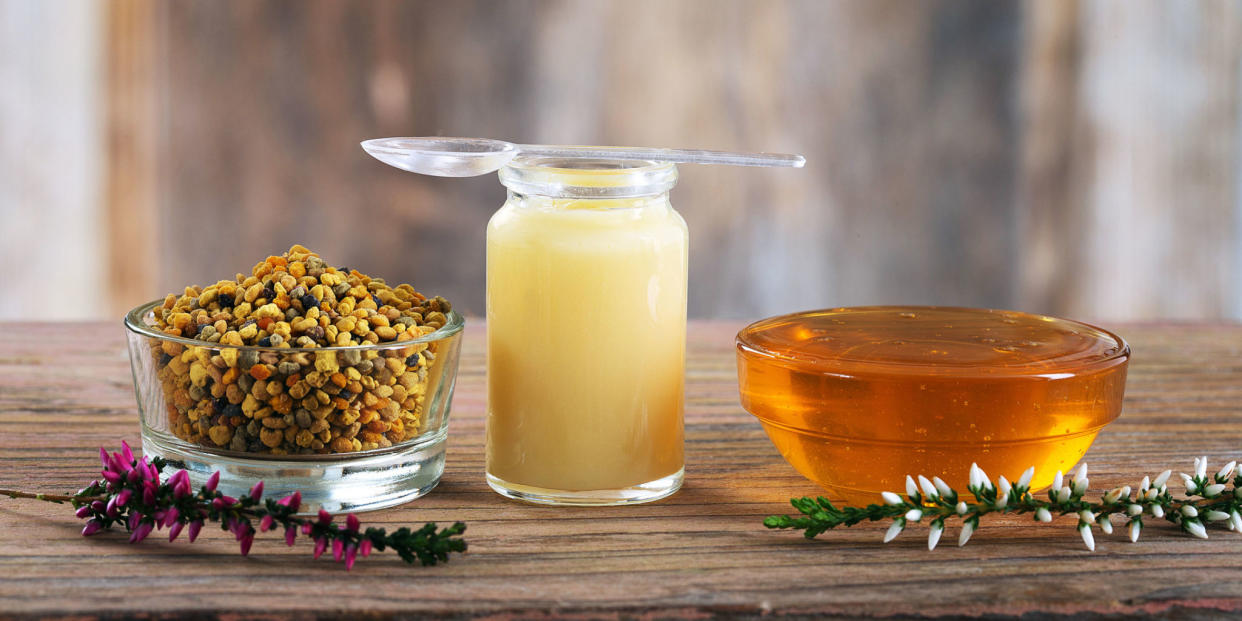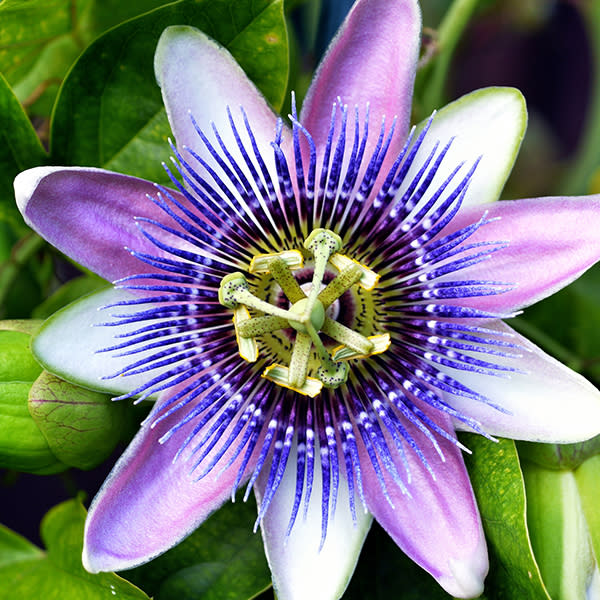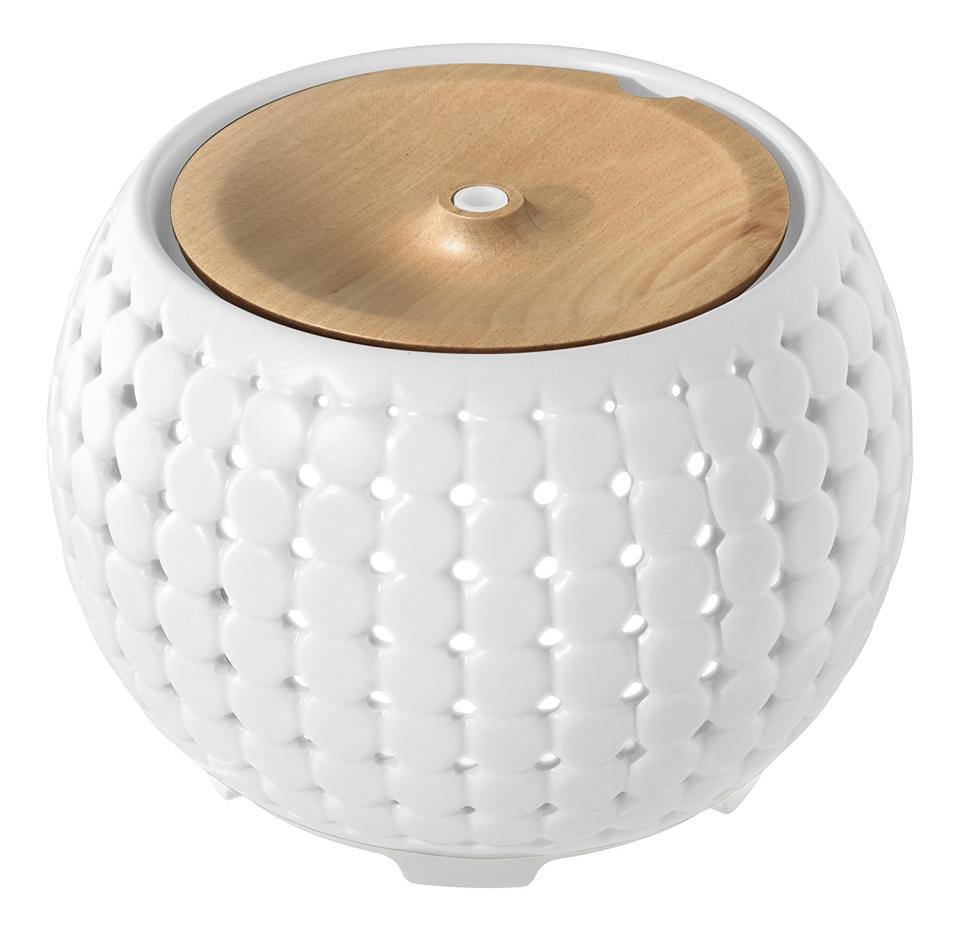6 best herbal remedies for anxiety

For some people who suffer from moderate to severe anxiety, the thought of taking prescribed medication to overcome it can be just as daunting as seemingly simple day-to-day tasks. Although medication is the right path for some, the possibility of side effects is not an appealing solution for everyone.
Similarly, those who suffer from mild anxiety and stress might be in search of something more natural and less invasive to help them feel calm, such as herbal remedies.
Do herbal remedies help anxiety?
Advised by Anxiety UK, we consulted the current British Association for Psychopharmacology (BAP) guidelines in the Journal of Psychopharmacology 28(5) and headed to the section on The role of self-help and complementary approaches in anxiety disorders.
The overall conclusion is that more research needs to be done:
Many patients with anxiety disorders wonder whether taking herbal preparations or nutritional supplements might prove beneficial, either instead of or in conjunction with standard pharmacological or psychological treatments [...] Remember that the evidence base for their use is relatively slight, when compared to the substantial evidence supporting the use of pharmacological and psychological interventions.
The guidelines go on to suggest other self-help methods, many of which were of no surprise to us:
Other complementary approaches include regular exercise and interventions drawing on meditation techniques. A systematic review indicates that exercise training reduces anxiety symptoms in sedentary patients with long-term medical conditions [I (M)] (Herring et al., 2010); and regular walking may enhance the efficacy of group CBT, across a range of anxiety disorders [II] (Merom et al., 2008).
BEST HERBAL REMEDIES FOR ANXIETY
1. St John's Wort
Used for nerve disorders for over 2,000 years, St John's Wort (Hypericum perforatum L) is a perennial, with bright yellow flowers, which grows wild in Europe, Asia and America.
A number of studies have shown St John's Wort to have a beneficial effect on those who suffer from mild anxiety and depression, although it is not exactly clear how. It is thought that the substance has the ability to prolong the affects of serotonin - a chemical in the body that, when in short supply, can lead to a mood imbalance.

What you need to know before taking St John's Wort:
• It can be bought over the counter without a prescription.
• It can interfere with other medications, including contraception and anti-depressants, so you should always consult your GP before you take it.
• It should not be taken during pregnancy or breastfeeding.
• It can increase your sensitivity to the sun.
2. Valerian
Valerian, native to Europe and North America, has long been used to treat anxiety, stress, muscle tension and insomnia. It contains valerenic acid and valeranon that help the body relax into a calm state so that sleep can come naturally.

What you need to know before taking valerian:
• It should not be taken with any other sleep-enhancing drugs.
• It should not be taken during pregnancy or breast-feeding.
• It can cause drowsiness so should not be taken before driving or during any activity which requires you to be alert.
• It is not suitable for children.
• It can be combined with other herbs such as lemon balm, hops and passionflower.
3. Passionflower
Similarly to valerian, passionflower is recognised for its calming and sedative actions which are effective in helping to combat anxiety, fatigue and sleep issues. It contains alkaloids, glycosides and steroids, with alkaloids being the main active ingredient.

What you need to know before taking passionflower:
• It should not be taken during pregnancy or breastfeeding.
• It can be combined with valerian and/or hops.
4. Lavender
There have been a number of studies which suggest that lavender is affective at easing stress and anxiety, calming nervousness and helping to induce sleep. Not only does lavender smell divine, its scent alone can reduce tension.
What you need to know before taking lavender:
• The use of lavender can be harmful for young boys and girls as it could affect their hormones. Consult a GP before using lavender on pre-pubescent children.
• You should consult your GP before using lavender if you are pregnant or breastfeeding.
• You should consult your GP before using lavender if you have recently had surgery as it can slow the nervous system and be unhelpful towards recovery.
5. Chamomile
Chamomile has long been used as a remedy for illness, including stomach trouble, colds and fevers. Now it's most frequently consumed in tea form and is well known for its relaxing properties and calming effect.
6. Lemon balm
This zesty scented herb is actually part of the mint family and is said to promote a feeling of calm. Like lavender and chamomile, lemon balm is also said to encourage restful sleep and is a powerful antioxidant.
HOW TO TAKE HERBAL REMEDIES
There are a number of different ways to take herbal remedies for anxiety. Choose from the below the one which is right for you:
• Tea - Browse the range at Holland & Barrett here.
• Supplements - Always consult the advise on the bottle before taking. Browse the range at Holland & Barrett here.
• Flower - If you have access to the original flower, you can brew your own tea or place them around the house.
• Essential oils - These oils can be inhaled straight from the bottle or rubbed onto the skin (check before if you have skin conditions).
Oils can also be added to the bath.
A great way to spread essential oils throughout the room is by using an electric diffuser - many also come with soothing noises and lighting. We like the Ellia Gather Ultrasonic Aroma Diffuser, (£109.99, Amazon).

Disclaimer: This information should not be used as an alternative to professional medical advice. You must always consult your GP if you are experiencing mental health concerns and need advice on treatment. You should also consult your GP if you are thinking of using herbal remedies and are already taking anti-anxiety or anti-depressant medication.
You Might Also Like


